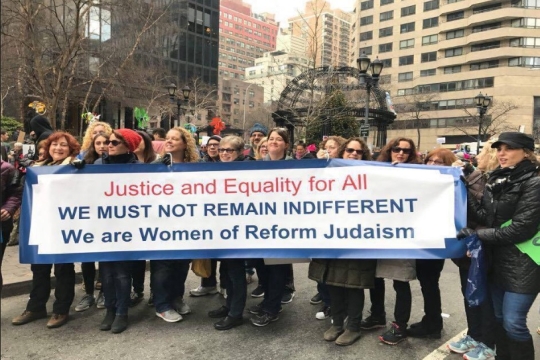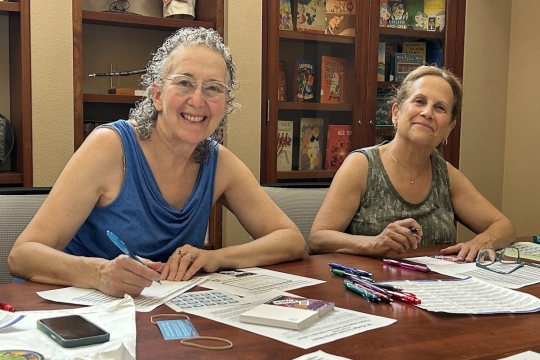
Right now, the state of Arizona bans abortion after 15 weeks, with many additional barriers individuals must face prior to receiving the procedure. Some of these barriers include: medically unnecessary ultrasounds, two appointments at least 24 hours apart with the first appointment being for in-person counseling, only physicians having the ability to perform abortions, and medication abortion that must be obtained in person. These barriers limit abortion accessibility, especially when individuals must travel to a physician, take time off work, and have access to transportation more than they may be able to afford.
After Roe v Wade was overturned, Arizona instated a 15- week ban policy; however, it can be changed at any moment due to the fact it is not inscribed into the state constitution. This past April, the Arizona Supreme Court tried to overturn the 15-week ban by implementing a total abortion ban from 1864, written before Arizona officially became a state. The state Senate and House were able to overturn this total ban and move it back to the 15-week ban, but it was a very close call due to the relatively equal split amongst the parties. Currently, Arizona’s State Senate has 16 Republicans and 14 Democrats, while the House has 31 Republicans and 29 Democrats. Arizona also has a very split state of registered voters, with 35.41% registered Republicans, 29.1% registered Democrats, and 33.95% registered Independents. This pretty equal divide leads to many uncertainties regarding the security of abortion access in Arizona.
Proposition 139 (Prop 139), Arizona for Abortion Access, is a citizens' initiative that would amend the Arizona constitution to establish the fundamental right to abortion. The proposition was filed with the Arizona Secretary of State on September 12, 2023 and is based on the idea that people have a right to individual autonomy, including health care, without government interference. If Prop 139 passes, the state will be unable to limit abortion access prior to fetal viability—about 24 weeks—protecting the individual’s right to their own decision and use of the least restrictive means necessary. This proposition also protects abortion access after viability if a health care provider has determined it necessary to protect the physical or mental health of the patient using the accepted clinical standards and evidence-based medicine. It would also prevent the state from penalizing anyone who assists another person in exercising their right to an abortion.
The proposition received a record-breaking 800,000 signatures, which is more than double the amount needed to make it onto the ballot. Now, it is crucial to vote yes on Prop 139 on the ballot in November. A recent poll found that 58% of likely voters were in favor of the amendment. Your vote matters.
Voting YES on this proposition would create the fundamental right to an abortion under Arizona’s constitution. The State will not be able to interfere with the good-faith judgment of a treating healthcare professional that an abortion is necessary to protect the life of the pregnant individual. The bill language includes terms like “every individual” to make it inclusive to every age and individual who may need an abortion. It also includes the term “treating health care professional” to allow nurse practitioners, physician assistants, and certified midwives to perform abortions, instead of just physicians, which the current law states. However, a NO vote would not create the fundamental right to have an abortion under Arizona’s constitution, would leave laws in place that restrict abortion before fetal viability, and allow the State to further restrict or ban abortion in the future.
Women of Reform Judaism (WRJ) has a long history fighting for reproductive rights and abortion access. In 1965, WRJ acknowledged the necessity of abortion access for the first time in the Judaism and Family Resolution. This resolution states that there is no distinction between voluntary and involuntary pregnancies when laws do not sufficiently take specific circumstances into account including race, economic status, or age.
In 1989, WRJ’s biennial assembly endorsed Roe v. Wade which began the commitment to preserving the reproductive rights of women, and supported funding for clinics that provide reproductive services to women. WRJ has continuously worked to secure reproductive rights and health and abortion accessibility spaces, and after Dobbs County v. Jackson Women’s Health Clinic in 2022, reaffirmed our commitment to Reproductive Rights in a Post-Dobbs world. This recommitment includes a call for WRJ’s sisterhoods, women’s groups, and individual members to acknowledge the fight for reproductive freedoms, abortion access, and bodily autonomy. Some actions you can take include urging elected officials to pass policies protecting abortion and reproductive health care, getting involved in campaigns and advocacy, and implementing programs on reproductive health and rights, abortion access, sex education, and menstrual equity to sisterhoods and congregations.
WRJ mobilizes collective action on a variety of issues, but most notably and recently, when it comes to reproductive freedoms. Through the strength, power, and momentum of WRJ North America—of sisterhoods, women’s groups, and individual members alike—we can secure abortion access when given the opportunity. In every state where we give people the right to choose, they choose correctly. This is in no small part due to the dedicated efforts of Reform Jewish women across cities, states, and districts. When their freedoms are at risk, they have called upon sisters from other states to help postcard, phone bank, and text bank; when it’s their turn, sisters return the favor.
Your voice matters. For Arizona to protect abortion access in the state constitution, your vote is crucial. Planning district, sisterhood, women’s groups events and inviting individual members part of your community or educating your community on why Proposition 139 is important to protect reproductive rights and health, and abortion access will make a difference. When we all come together, we can make change.
Related Posts

Tea With Sandra, Ruth, and Amy

A Privilege and A Sacred Duty


